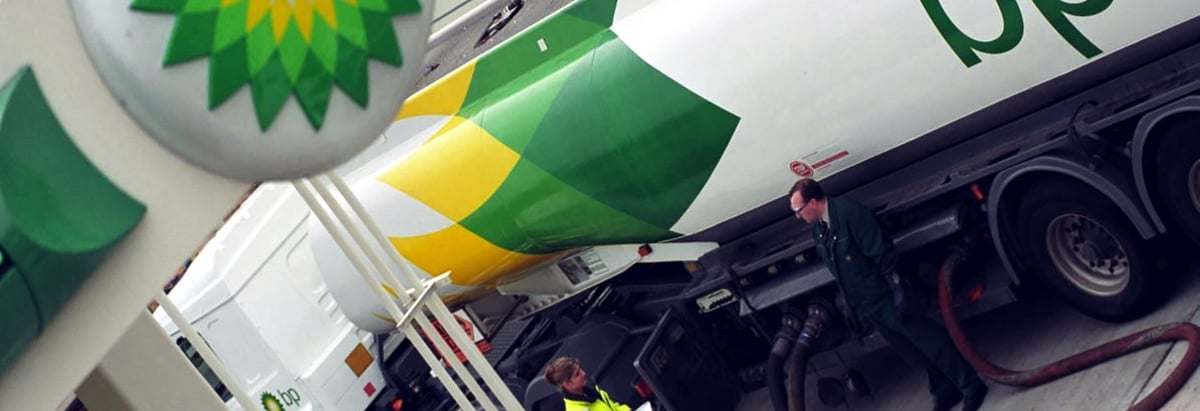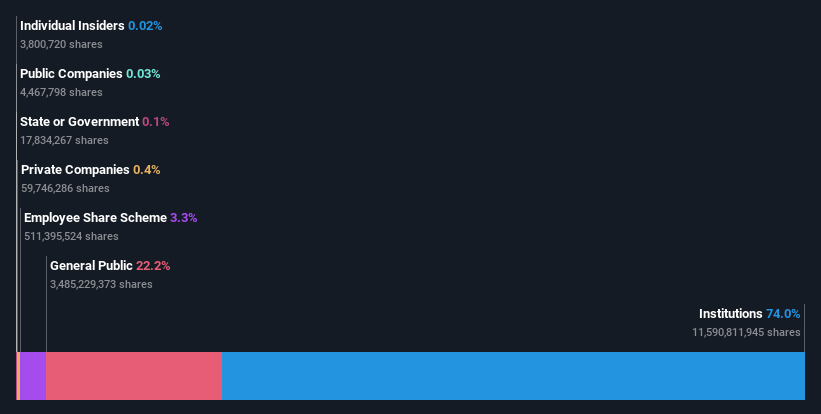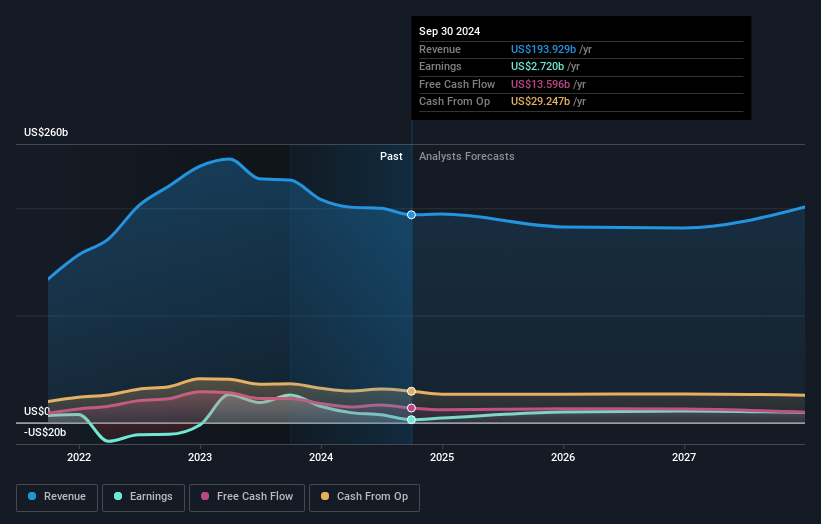- United Kingdom
- /
- Oil and Gas
- /
- LSE:BP.
Great week for BP p.l.c. (LON:BP.) institutional investors after losing 4.6% over the previous year

Key Insights
- Institutions' substantial holdings in BP implies that they have significant influence over the company's share price
- 45% of the business is held by the top 25 shareholders
- Recent purchases by insiders
Every investor in BP p.l.c. (LON:BP.) should be aware of the most powerful shareholder groups. We can see that institutions own the lion's share in the company with 74% ownership. In other words, the group stands to gain the most (or lose the most) from their investment into the company.
Institutional investors would appreciate the 3.2% increase in share price last week, given their one-year losses have totalled a disappointing 4.6%.
Let's delve deeper into each type of owner of BP, beginning with the chart below.
See our latest analysis for BP

What Does The Institutional Ownership Tell Us About BP?
Many institutions measure their performance against an index that approximates the local market. So they usually pay more attention to companies that are included in major indices.
We can see that BP does have institutional investors; and they hold a good portion of the company's stock. This implies the analysts working for those institutions have looked at the stock and they like it. But just like anyone else, they could be wrong. If multiple institutions change their view on a stock at the same time, you could see the share price drop fast. It's therefore worth looking at BP's earnings history below. Of course, the future is what really matters.

Institutional investors own over 50% of the company, so together than can probably strongly influence board decisions. We note that hedge funds don't have a meaningful investment in BP. Our data shows that BlackRock, Inc. is the largest shareholder with 9.6% of shares outstanding. With 4.9% and 4.8% of the shares outstanding respectively, The Vanguard Group, Inc. and Norges Bank Investment Management are the second and third largest shareholders.
On studying our ownership data, we found that 25 of the top shareholders collectively own less than 50% of the share register, implying that no single individual has a majority interest.
Researching institutional ownership is a good way to gauge and filter a stock's expected performance. The same can be achieved by studying analyst sentiments. There are plenty of analysts covering the stock, so it might be worth seeing what they are forecasting, too.
Insider Ownership Of BP
While the precise definition of an insider can be subjective, almost everyone considers board members to be insiders. The company management answer to the board and the latter should represent the interests of shareholders. Notably, sometimes top-level managers are on the board themselves.
Most consider insider ownership a positive because it can indicate the board is well aligned with other shareholders. However, on some occasions too much power is concentrated within this group.
Our data suggests that insiders own under 1% of BP p.l.c. in their own names. As it is a large company, we'd only expect insiders to own a small percentage of it. But it's worth noting that they own UK£16m worth of shares. It is always good to see at least some insider ownership, but it might be worth checking if those insiders have been selling.
General Public Ownership
With a 22% ownership, the general public, mostly comprising of individual investors, have some degree of sway over BP. This size of ownership, while considerable, may not be enough to change company policy if the decision is not in sync with other large shareholders.
Next Steps:
While it is well worth considering the different groups that own a company, there are other factors that are even more important. To that end, you should be aware of the 3 warning signs we've spotted with BP .
Ultimately the future is most important. You can access this free report on analyst forecasts for the company.
NB: Figures in this article are calculated using data from the last twelve months, which refer to the 12-month period ending on the last date of the month the financial statement is dated. This may not be consistent with full year annual report figures.
Valuation is complex, but we're here to simplify it.
Discover if BP might be undervalued or overvalued with our detailed analysis, featuring fair value estimates, potential risks, dividends, insider trades, and its financial condition.
Access Free AnalysisHave feedback on this article? Concerned about the content? Get in touch with us directly. Alternatively, email editorial-team (at) simplywallst.com.
This article by Simply Wall St is general in nature. We provide commentary based on historical data and analyst forecasts only using an unbiased methodology and our articles are not intended to be financial advice. It does not constitute a recommendation to buy or sell any stock, and does not take account of your objectives, or your financial situation. We aim to bring you long-term focused analysis driven by fundamental data. Note that our analysis may not factor in the latest price-sensitive company announcements or qualitative material. Simply Wall St has no position in any stocks mentioned.
About LSE:BP.
Undervalued with excellent balance sheet.
Similar Companies
Market Insights
Community Narratives



